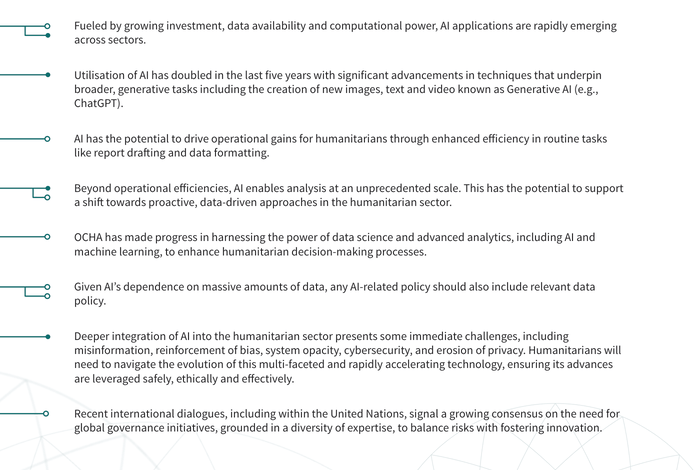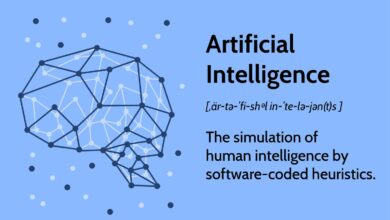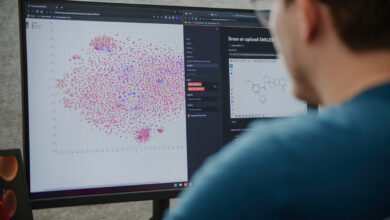Briefing Note on Artificial Intelligence and the Humanitarian Sector – World

KEY TAKEAWAYS
Artificial intelligence (AI) is the simulation of human intelligence by machines that are programmed to perform complex cognitive functions.
Fueled by growing investment, data availability and computational power, AI applications are rapidly emerging across sectors.
Utilisation of AI has doubled in the last five years with significant advancements in techniques that underpin broader, generative tasks including the creation of new images, text and video known as Generative AI (e.g., ChatGPT).
AI has the potential to drive operational gains for humanitarians through enhanced efficiency in routine tasks like report drafting and data formatting.
Beyond operational efficiencies, AI enables analysis at an unprecedented scale. This has the potential to support a shift towards proactive, data-driven approaches in the humanitarian sector.
OCHA has made progress in harnessing the power of data science and advanced analytics, including AI and machine learning, to enhance humanitarian decision-making processes.
Given AI’s dependence on massive amounts of data, any AI-related policy should also include relevant data policy.
Deeper integration of AI into the humanitarian sector presents some immediate challenges, including misinformation, reinforcement of bias, system opacity, cybersecurity, and erosion of privacy. Humanitarians will need to navigate the evolution of this multi-faceted and rapidly accelerating technology, ensuring its advances are leveraged safely, ethically and effectively.
Recent international dialogues, including within the United Nations, signal a growing consensus on the need for global governance initiatives, grounded in a diversity of expertise, to balance risks with fostering innovation.
Disclaimer
- UN Office for the Coordination of Humanitarian Affairs
- To learn more about OCHA’s activities, please visit https://www.unocha.org/.



